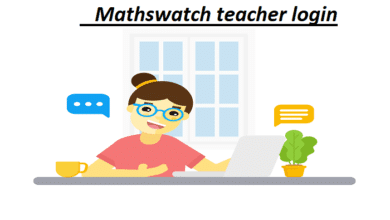Balancing Act: The Importance of Fun for Serious Students

The life of a student is often depicted as a relentless pursuit of knowledge, a journey marred by towering books, looming deadlines, and the relentless pursuit of academic excellence. However, to realize one’s full potential, finding balance is crucial—not merely for one’s well-being but also for bolstering the learning process itself. It turns out that allowing space for fun and leisure isn’t just enjoyable; it’s essential for a healthy and productive academic life. In this article, we will delve into why striking a balance is vital and how serious students can incorporate fun without compromising their scholarly goals.
The Role of Leisure and Entertainment in Academic Success
Leisure and entertainment are often misunderstood as distractions from academic success, but they can actually complement study efforts. Engaging in activities like play Sugar Rush slots online offers a mental break, helping to refresh the mind after long study sessions. Such diversions can enhance focus and reduce stress, contributing to better academic performance.
Moreover, group activities foster social skills and teamwork, which are crucial in educational settings. Leisure should be seen as an essential part of a student’s routine, balancing study with relaxation for a more fulfilling and successful academic life.
Understanding the Need for Balance in Student Life
Educational rigor can cause stress and overwhelm students, making it essential to balance academic responsibilities with downtime for mental health. This balance helps students recover cognitive capacities like memory, attention, and problem-solving, which are crucial in academic settings. Regular relaxation and enjoyment provide respite for these functions.
Balancing studies with leisure fosters long-term academic endurance, as nourishing hobbies and social interactions build resilience. Mastering this art requires deliberate planning, but those who master it can achieve academic success while sustaining a joyful and fulfilling student life.
Strategies for Integrating Fun and Study into a Busy Schedule
Time management is a crucial skill for any student attempting to fuse fun with learning. One practical approach is to designate specific time blocks for uninterrupted study and intervals for relaxation. This structured separation ensures that both aspects receive due attention. Students can employ a reward system where leisure activities serve as incentives for achieving study goals. This not only provides motivation but also associates positive feelings with the accomplishment of academic tasks.
Another strategy is to look for overlaps between interests and academic requirements. For instance, students could choose elective courses that resonate with their hobbies or participate in study groups that also engage in social activities. Such choices can make the learning process more enjoyable. Being realistic and flexible with one’s schedule further aids in integrating fun without falling behind academically. Preparing for unexpected disruptions allows students to adapt quickly and maintain balance without excessive stress.
The Psychological Benefits of Downtime for Learning and Creativity
The human brain isn’t built for incessant work without breaks. Downtime doesn’t just prevent burnout; it can actively contribute to learning. Rest periods, inclusive of hobbies and entertainment, allow the brain to process and consolidate new information, enhancing memory retention. Creativity often blossoms during periods of relative mental inactivity. When the mind is at ease and not focused on a specific task, it is more likely to make novel connections—leading to creative insights that can be applied to academic challenges.
Engaging in activities unrelated to coursework can broaden a student’s perspective, enabling them to draw from a richer palette of experiences when tackling complex problems or when involved in creative projects. While studying is undoubtedly vital, descents into realms of leisure could provide the subconscious mind with the room it needs to wander, explore, and emerge with fresh ideas and renewed energy for academic endeavors.
Success in Students Who Prioritize Play
High-achievers often excel by integrating play into their demanding schedules. For students in BCBA schools, creative pursuits like sports, music, or travel aren’t just breaks—they actively enhance academic focus and contribute to a well-rounded intellect.
These leisure activities often directly connect to academic content, offering real-world insights that enrich both education and professional readiness. Successful academics emphasize that balancing study with hobbies is crucial, proving that leisure is key to their accomplishments.
Overall, the consensus is compelling: a balanced life for students —one that recognizes the importance of both diligent study and restful play— is not only healthier but can foster an environment where learning thrives and creativity is nourished. The stories of those who achieved this balance can serve as a beacon, showing that with careful management and a mindful approach to one’s lifestyle, academic excellence and a joyful existence are not mutually exclusive endeavors




